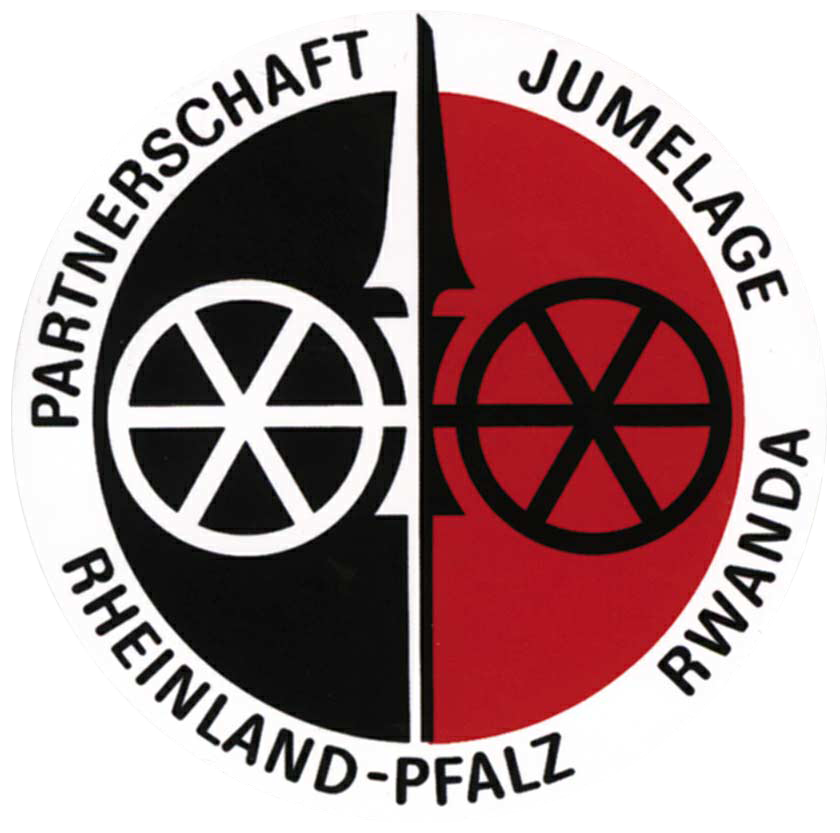Within the framework of the partnership between Rhineland-Palatinate and Rwanda a wide variety of projects have already been carried out. In the following you will find a small overview of typical and less typical projects of our partnership.
Education
A typical project within the framework of a (school) partnership is the financial support for the construction or renovation and equipment of classrooms. This can relieve schools with overcrowded classrooms and offer a more pleasant learning environment to the students. The construction measures usually include the construction of a rainwater cistern to support the water supply in the schools and the construction of latrine blocks to improve hygiene. Schools were also equipped with computers and science kits. The latter serve to make science lessons more practice-oriented, as in Ruada the lessons are mostly held as frontal teaching.
Since malnutrition is still a major problem in Rwanda, nutritional programmes are also supported. Parents cultivate school gardens together in order to use the proceeds to finance the children's school meals. This reduces the problems associated with malnutrition (e.g. reduced performance at school, poor health) and gives the children an incentive to attend school regularly.
Reading is not very widespread in Rwanda. In order to promote the benefits of reading (language development, creativity), book boxes have been made available at various schools for use in class.
Another project is the "painting conversations", which is based on the idea to create a simplified communication between German and Rwandan primary schools. Since the children of both countries usually have little knowledge of English at primary school age, this project enables them to exchange ideas about painting with watercolours. Thus both schools can discuss the same questions (How do I live? How do I imagine life in RLP/Rwanda? My future dreams and goals...) paint a corresponding picture. The pictures will be sent to the partner school and the children will have an insight into how the other one lives and what his ideas are.

Vocational schools
Vocational schools are also supported by the partners, for example in building additional studios or equipping them with materials necessary for the craft taught. The construction of register cisterns and sanitary facilities is also part of this. This support enables more pupils to be trained in a profession, which improves their career prospects
Healthcare and inclusion
We are also active in the field of healthcare and inclusion. Health stations are supported and e.g. ambulances are financed by partner organisations. In addition, there are also projects for the construction or renovation of facilities for physically and mentally disabled people. There, dormitories and classrooms are being fitted, cisterns are being built and toilets are being (re)constructed for the disabled. But the construction itself is usually not the problem. Often support is needed in the daily expenses, such as medication or visits to the doctor. A special project to promote inclusion is the SUGIRA network. This network connects inclusion centers in Rwanda with each other. Furthermore, they are in close contact with funding agencies in Rhineland-Palatinate. You can find more information under "Lighthouse projects".
Within the scope of the partnership between the "Pfalzklinikum" and the Caraes-Ndera-Hospital for psychiatric diseases, among other things, the foundation of self-help groups for former patients of the hospital was supported. In addition to these self-help groups, the former patients are to experience economic empowerment in order to help the patients to become economically independent in the long run despite the stigmatization of mental diseases in Rwanda and the resulting lack of social support systems (family, job).
Income generating measures
Numerous livestock breeding projects have been initiated to support poor families. This enables families to provide for themselves with food and earn money. Further possibilities are the help in the procurement of materials to practise a trade. These can be sewing machines or baking utensils, to earn money by producing goods.
Sports
Even though Rwanda has already had numerous successes in terms of equal rights for men and women, young women, especially in rural areas, are still often disadvantaged and have few future opportunities and prospects due to family obligations, for example. Through the empowerment of young women, the partnership wants to counteract this, in order to enable women to lead a self-determined life. Sport in particular can contribute to their own development as part of cultural activities. Learning new skills and knowledge can help to strengthen self-confidence and an equal sense of community.
With this goal, the women's football club Rambura WFC was founded in 2008 as part of the partnership between Rambura and Holzheim. The football team even made it to the first national league, which is rare for a team from a rural area.
Another project is "Sports4Peace". Here teachers are trained to use sport as a means of conflict resolution in physical education. You can find more information on this under "Lighthouse projects".
Weiter zu
 Partnerschaftsverein Rheinland-Pfalz/Ruanda e.V.
Partnerschaftsverein Rheinland-Pfalz/Ruanda e.V.


